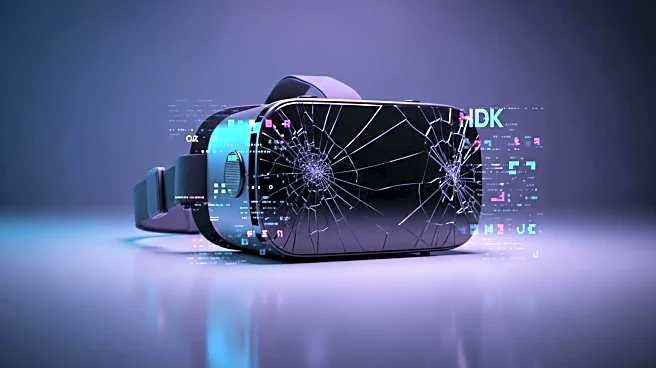What's Happening?
Meta's recent Connect keynote on September 17, 2025, was marked by a significant demo failure involving their new Display glasses, priced at $799. During the live demonstration, a call failed, prompting Meta's CEO to make an offhand remark that has since raised concerns about the readiness of the device. The glasses are set to ship on September 30, 2025, with IDC projecting 14.3 million AR/VR shipments for the year. The incident has sparked skepticism among consumers and analysts, questioning the reliability and safety of the product.
Why It's Important?
The failure of the demo and the subsequent remark by Meta's CEO have highlighted potential issues with consumer trust in the company's AR technology. This could impact early sales and adoption rates, as consumers may be hesitant to invest in a product perceived as unreliable. The incident also underscores the importance of product readiness and consumer confidence in the competitive AR market, where Meta faces rivals like Amazon and Apple. The broader implications could affect Meta's market position and influence future product development strategies.
What's Next?
Meta will need to address the technical issues and restore consumer confidence to ensure successful sales of their Display glasses. This may involve software updates, transparency in communication, and possibly offering refunds or incentives to early adopters. The company must also navigate regulatory scrutiny regarding privacy and safety concerns associated with wearable technology. The outcome of these efforts will likely shape Meta's future in the AR market and influence consumer perceptions of smart glasses technology.
Beyond the Headlines
The incident raises ethical and cultural questions about the integration of AR technology into daily life, particularly concerning privacy and data security. As wearable technology becomes more prevalent, companies like Meta must balance innovation with responsible practices to protect user data and ensure safety. The event also highlights the cultural impact of technology failures, where public perception can be swayed by seemingly minor incidents, affecting brand reputation and consumer trust.









